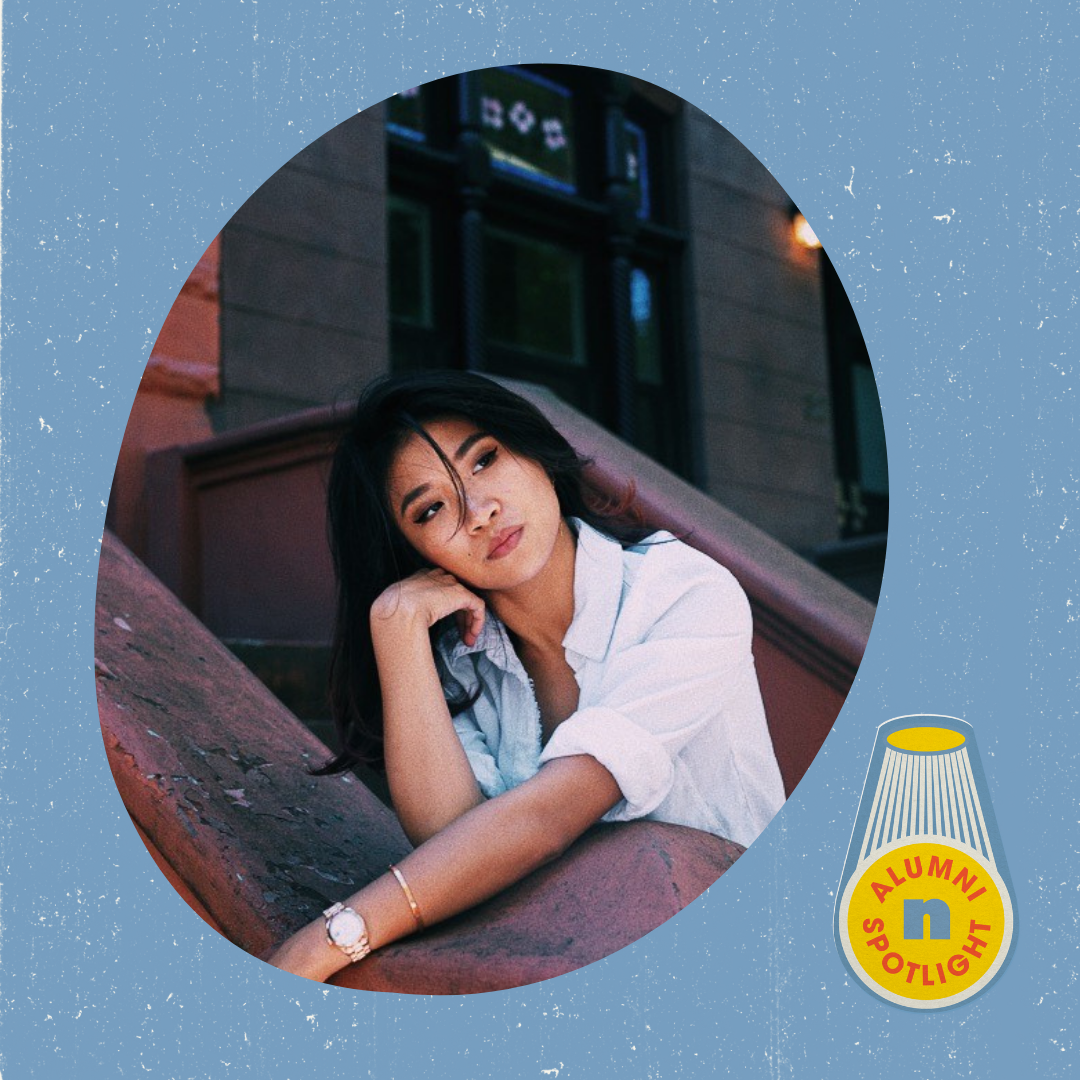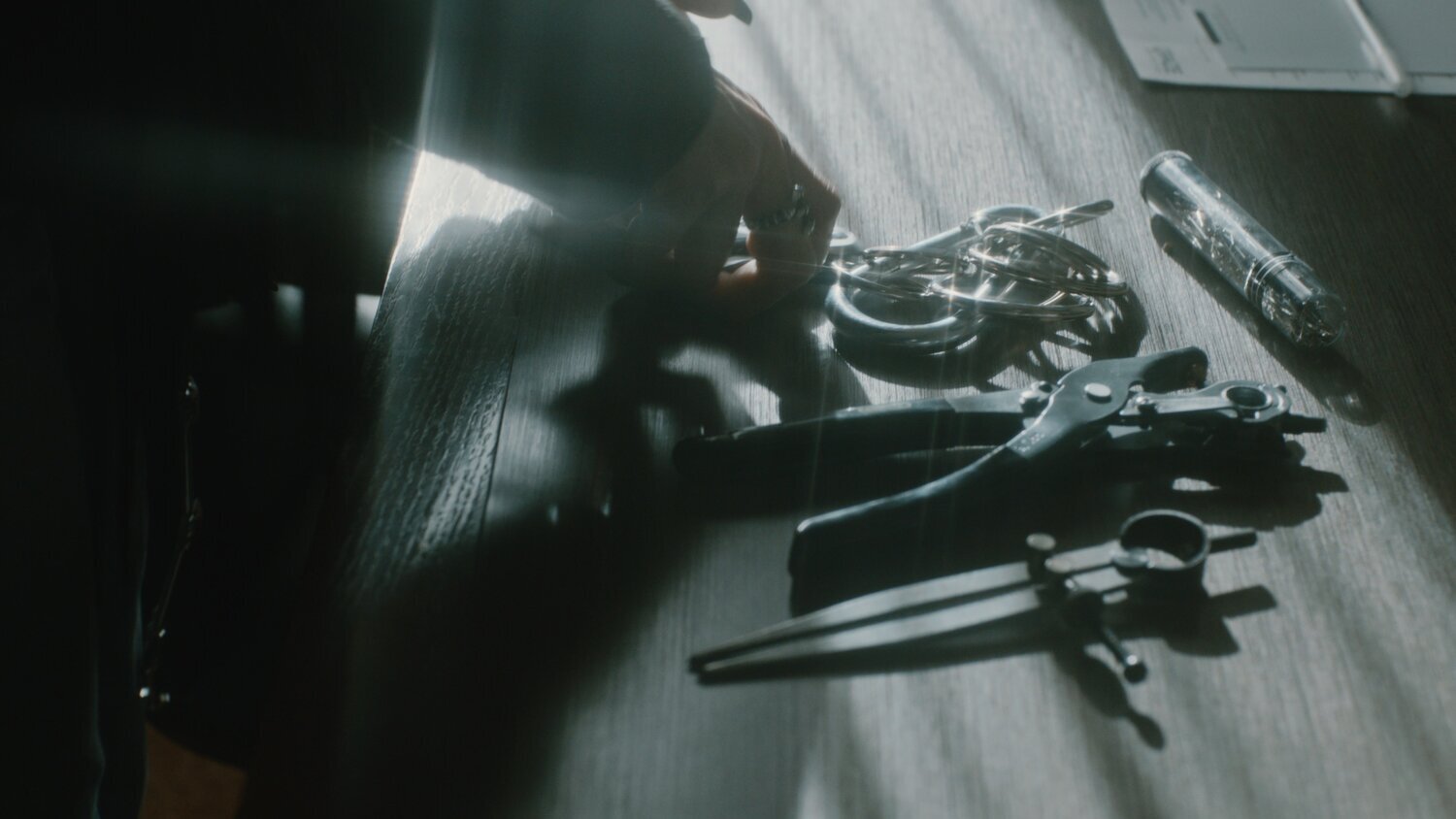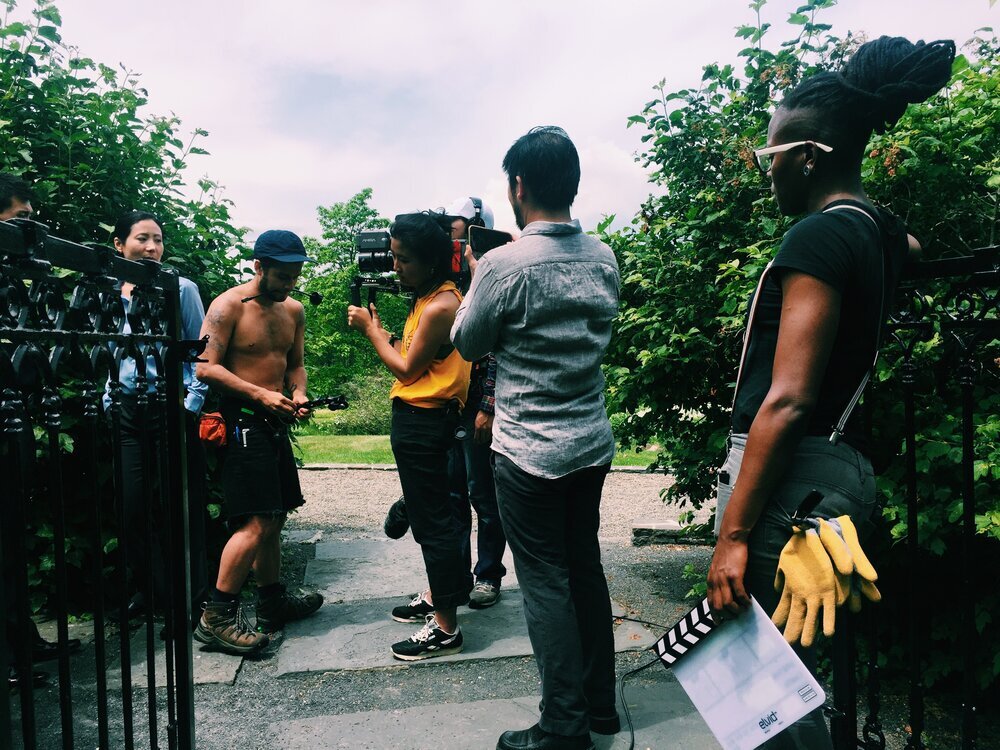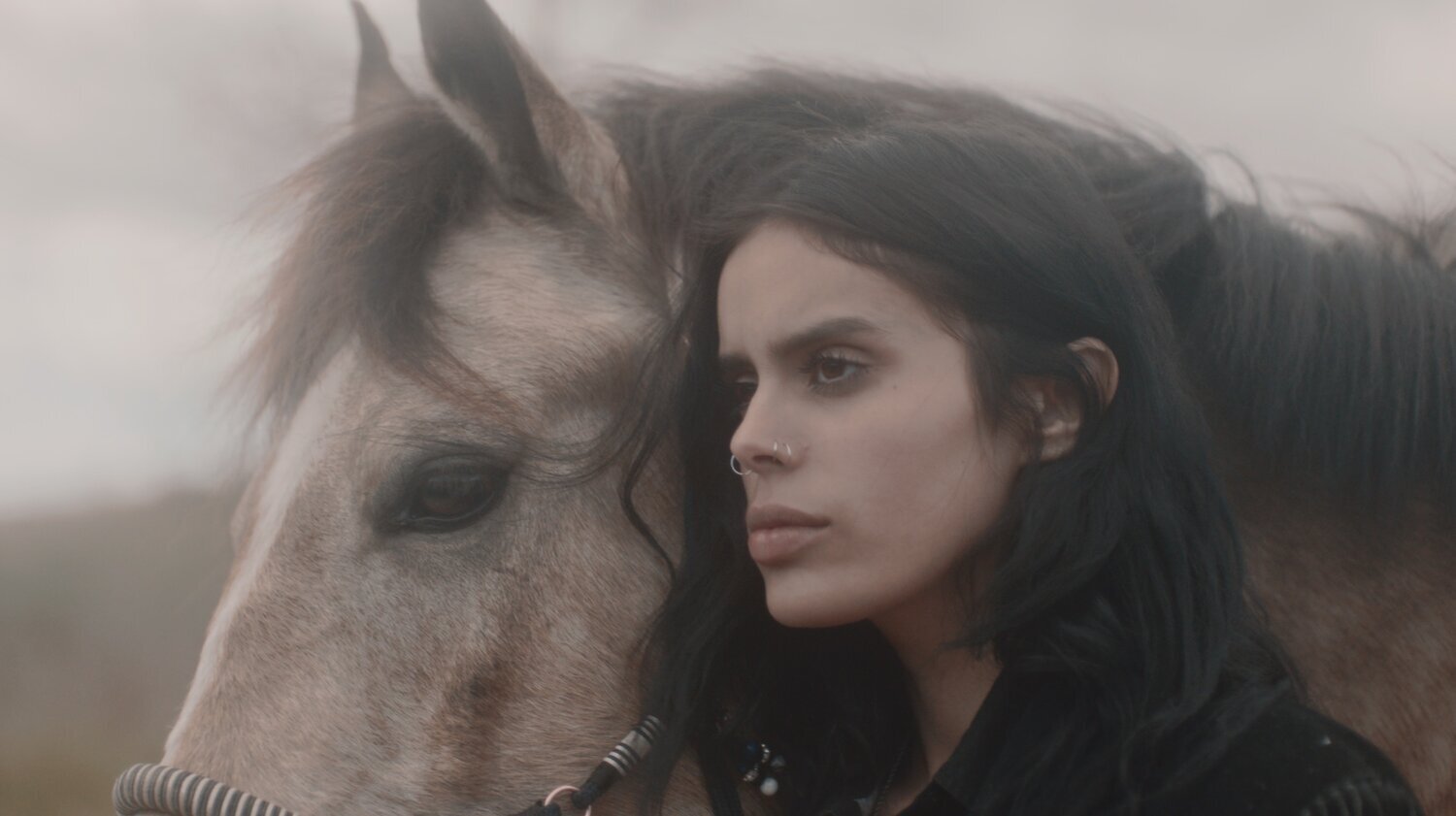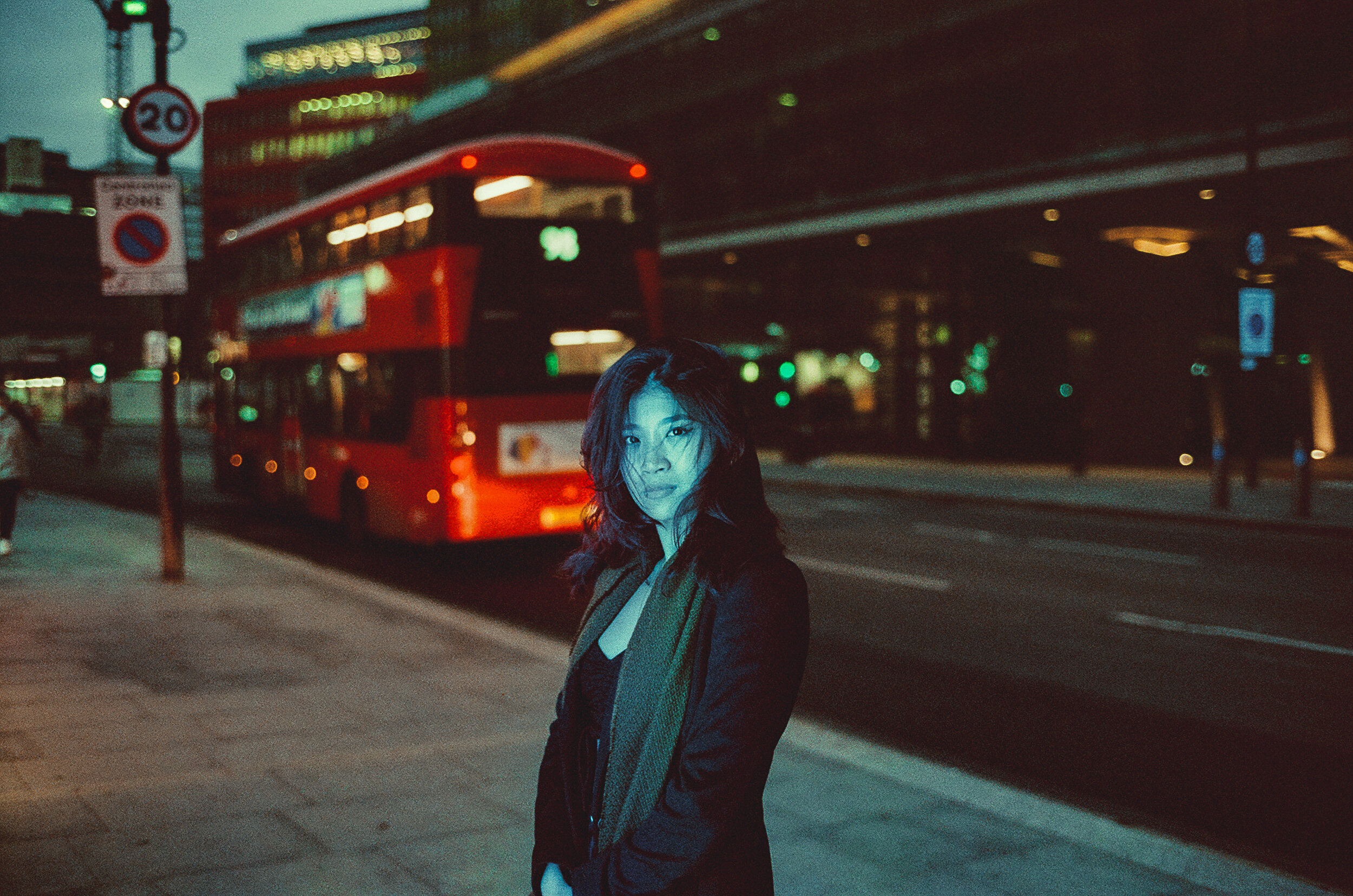September 30, 2021
Alumni Spotlight: Isabella Tan
ISABELLA TAN (2015) is an award-winning storyteller from South East Asia. Born in Taiwan and raised in Malaysia, she found another home in New York.
She is a director and cinematographer. Her work aims to craft stories with a sense of surrealism and keen focus on conveying raw human emotions. Her narrative projects have travelled various film festivals globally. Aside from her film work, she also freelances as a fashion and portrait photographer.
Our Interview with Isabella:
How did you first become interested in filmmaking as a storytelling medium?
Bed and Breakfast
Dir: Anna Mikami
D.P.: Isabella Tan
I was obsessed with Lord of the Rings as a child and couldn’t believe they built this universe from the real world. Also Legolas! My interest continued when I first picked up a camera as a teenager. I became the family photographer, especially during our travels. I was absolutely engrossed with how things looked behind the lens; how people looked, how the light affected the image, how colors changed. It began as a hobby but I found myself submitting an application for NYU. Even though my family traveled a lot, they were really protective, so I was pretty sheltered. So movies, documentaries and animes became my escape. I would get totally immersed in these worlds and characters; I loved feeling all the feelings, as they say. It seemed like such a magical thing that I wanted, more than anything: the ability to start conversations, debates, to make people feel things, question things, remember things -- what an incredible medium.
In addition to directing, you also work as a cinematographer. How did you come to focus on that aspect of the filmmaking process? What do you enjoy most about being in the cinematographer role, instead of in the director’s chair?
How The West Was Won
Dir: Razieme Iborra
D.P.: Isabella Tan
Haha, I’d say it’s the other way around right now: in addition to cinematography, I work as a director. From a photography background, cinematography was a natural progression. I loved constructing still images and now those images move, what a revelation! To be honest, it is usually more relaxing to be a Cinematographer -- my work then is to just focus on lighting, framing and what happens within the camera lens. It’s a practise in craftsmanship and interpretation, rather than expansive creation. In a way, there are natural limitations—ie what the director wants—that actually allow more room for experimentation and creativity. Also as a cinematographer I get to work more closely with my crew and, to be frank, more sleep!
You have lived and/or worked in quite a few cities (and countries!) What has that experience been like? How does the film industry in the United States compare to those in other countries?
I’ve been so lucky to work in as many places as I have. Travel has always been a big part of my life and doing so as a filmmaker really offers a closer look at new cultures and experiences. In other countries, I love that filmmaking is a universal language that we all speak, even if we don’t share another language. In Southeast Asia, I feel like filmmakers have the New York spark; they’re hungry and eager to prove themselves but they don’t have easy access to the kinds of cultural and educational opportunities others have found in the States. The film industry in the US is vibrant because the freedoms of speech and expression allow us to say and shoot most subjects. There is the acceptance of more challenging, risque stories, characters and tropes you won’t often find in other countries that have censorship or conservative societies. But at the same time, that makes it extremely competitive and oversaturated. Like I said earlier, sometimes having natural limitations is great for creativity! The rigs I’ve seen built by grips in smaller markets, with no access to the proper equipment, are remarkable.
Arden Cho
Photography: Isabella Tan
When not working on films, you freelance as a fashion photographer! That seems like a fascinating job. How did you find your way into the field of professional photography, and what do you enjoy the most about that work? What do you find most challenging?
I actually got into photography first. I started with fine arts photography, then started to see how fashion heavily borrows from fine art concepts. I was always interested in fashion (my teenage photos don’t show that very well but I promise it’s true) and I loved flipping through big fashion photography books. Those pages are always so immersive, colorful and beautiful. Photography is enjoyable because the image doesn’t move! Once you have it, you have it. There is a beauty and a message that comes throughout a single photo that sometimes can be easier to convey and tell because of its simplicity. On the other hand that’s also the most challenging part -- to create an image that could tell a thousand words the way film does. The other part is that because the image isn’t moving, mistakes can be seen easier -- there’s no motion blur to hide little blips here and there.
You are part of a BIPOC filmmaking collective, responsible for the “& Still” films series. How were you introduced to this project and community?
I wouldn’t say a collective as much as a community. There wasn’t a full on collective that we’re a part of -- most of us that worked on that project are freelancers. In fact, I met many of my fellow crew members for the first time on that shoot. But we were all part of the same circle of BIPOC filmmakers and it’s so incredible to see fellow like-minded people come together and bring a perspective to life that we really believe in. I feel so lucky to give back to the community. I was brought in by Sally Tran, the director, to shoot, having been recommended to her by word of mouth on a previous project. It’s incredible, the jobs that come your way sometimes.
Lola (2018) - Behind the Scenes
Dir: Isabella Tan
You are also an active member of other film and photography communities that aim to uplift women, non-binary and BIPOC creatives. How have these memberships or contributions impacted your personal and professional life? Are there any communities or resources you would recommend to other young filmmakers looking for similar opportunities?
Oh my gosh there’s so many I’m involved in that I lost count! I love forming connections in these communities. As an first-gen creative in New York, it gets lonely because my family are back in Asia and when I first moved here, I felt so alone. But these communities are important to find creative collaborators, friends and they serve as a space for you to find like-minded people and to feel safe and supported. I really recommend these following sites to start:
SPORAS
nycwomenfilmmakers.org
freethework.com
womennmedia.com
What advice do you have for young filmmakers who are hoping to find a balance, as you have, between producing deeply personal work and paid, commercial work?
I often find the scale tips between one or the other. It never feels balanced and things feel more chaotic than it actually is most of the time. This is something I work on a lot now, but it’s important to establish boundaries for yourself. Film is one of those things you can keep working on during all hours of the day, every single day -- it’s hard to kind of turn it off. There is always something to do, so being aware of your limitations is important for self-care. I’m lucky in that I can choose between shooting commercial work and directing personal projects, so I think a separation of skills is really helpful. I am still learning how to do this and I think I’m getting closer to what I want but it’s an ongoing process!
How has NFFTY impacted your life or career?
How The West Was Won
Dir: Razieme Iborra
D.P.: Isabella Tan
NFFTY was the first film festival my narrative work got into. It is such a respected and popular festival for young filmmakers that I always admired with starry eyes. Getting my project into NFFTY all those years ago opened a lot of doors for me, both professionally and artistically. Being able to meet all those creatives and watch all those projects was so inspiring. As my first big festival, I was so proud of myself and felt so validated with all the work I had put into my career. Of course, that was probably almost a decade ago, so it’s been quite a journey! NFFTY is still thriving, the staff and community are supportive of each other and it’s such a good place for me to discuss ideas, watch new work and to meet rising talents.
What’s next for you? Anything we should be on the lookout for?
So many things! Currently developing a short film, a documentary and a series! It’s been a long time since I sat in the Director’s chair for a full narrative project since 2017 but I feel that I’m ready to summit that mountain. I can’t say too much, but one of the projects is about an immigrant woman being pushed by her family to find a husband in the US, so we’ll be exploring Asian family dynamics and cultural expectations in an intimate way.

